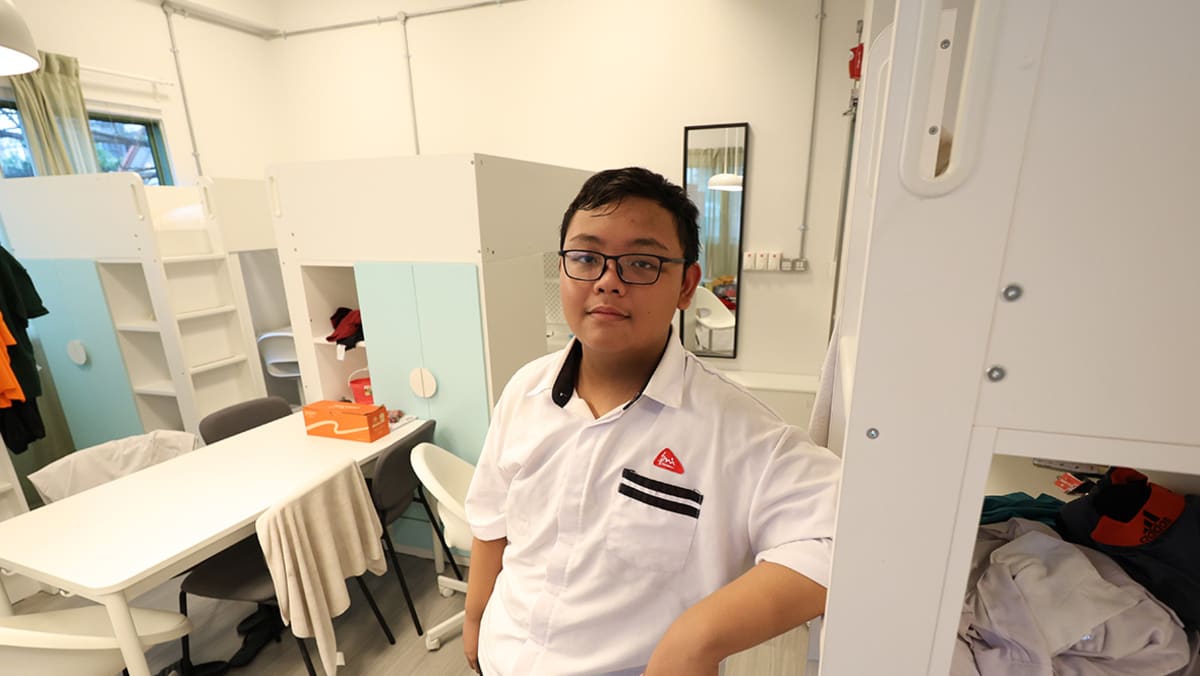
SINGAPORE — Secondary 2 student Rayyan Fahim loves to draw, and dreams of working in an animation studio when he grows up.
Since moving into =Dreams, a new co-ed residential campus, in January this year, the 14-year-old has been inching closer to his goals.
“One of the mentors here, Mr Felany, has art experience. So I’m hoping that I can learn from him on how to do the basics of animation,” said Rayyan.
Beyond this, he has also dipped his toes in three-dimensional (3D) printing as part of his extracurricular activities while living on campus. He has even visited Temasek Polytechnic to learn more about the technology.
For Rayyan, =Dreams is a home away from home.
Envisioned as a programme to build dreams and equalise opportunities, the new co-ed residential campus provides after-school academic and holistic support to disadvantaged students between the ages of 13 and 18.
Located at 99 Haig Road, the site of the old Geylang Serai Community Club, the campus opened its doors to its first batch of scholars, as the students are called, in January this year.
To be considered for admission, scholars must be Singaporeans or permanent residents. They must also be residing in a rental flat under the Housing and Development Board’s (HDB) public rental scheme.
Those who are successful receive a scholarship that covers the fees for their lodging, meals on campus, and tuition and enrichment classes.
The programme does not replace academic education for the scholars, who still attend schools under the Ministry of Education.
Ms Juliet Tanuwira, the executive director of =Dreams, said that the campus was established to serve the lower-income communities – particularly those living in HDB public rental flats.
Children from some of these families face significant disadvantages due to financial limitations and other circumstances and, as a result, may find themselves caught in a cycle of generational poverty, she pointed out.
“Despite existing policies aimed at social mobility, these children may internalise perceptions that they cannot achieve more,” said Ms Tanuwira.
As such, =Dreams aims to “provide opportunities to those whose environments limit their chances of success”, she added.
Today, 25 scholars aged 13 to 14 reside on campus from Monday to Thursday, though the team is working to bump this figure up to 240 in future.
The scholars shuttle between the =Dreams premises and their respective schools on weekdays, before returning home on Friday to spend the weekend with their families.
They return to the campus on Sunday evening to gear up for the new week.
Besides addressing their basic daily needs and providing them with a “positive and conducive environment”, =Dreams also offers tailored support to its scholars, said Ms Tanuwira.
This could look like academic support – rendered through twice-weekly Mendaki tuition, or separate “study buddy” sessions where student volunteers from nearby Victoria Junior College visit the campus to help scholars in their studies.
It could also take the form of extracurricular activities designed to meet scholars’ own goals and personal interests.
“We believe that every young person possesses virtues and talents, which may not always manifest through traditional academic channels,” said Ms Tanuwira.
“The =Dreams scholarship signifies more than just financial support; it’s about opening doors for these young individuals. Equally important, it’s about fostering a mindset that encourages them to explore and recognise their unique abilities.”